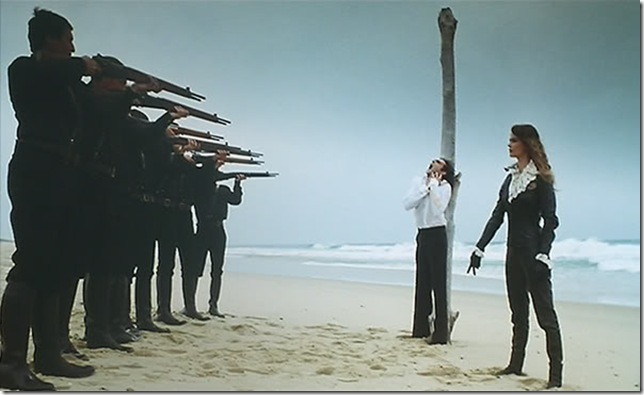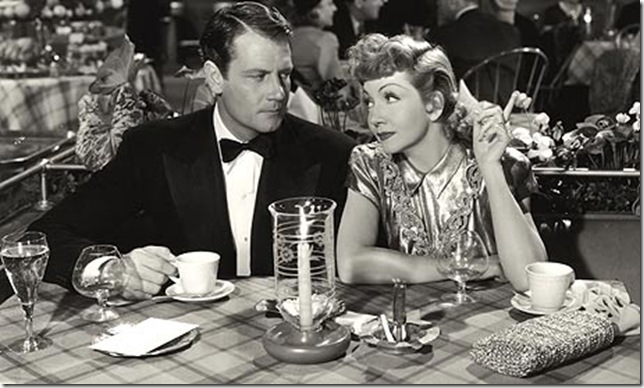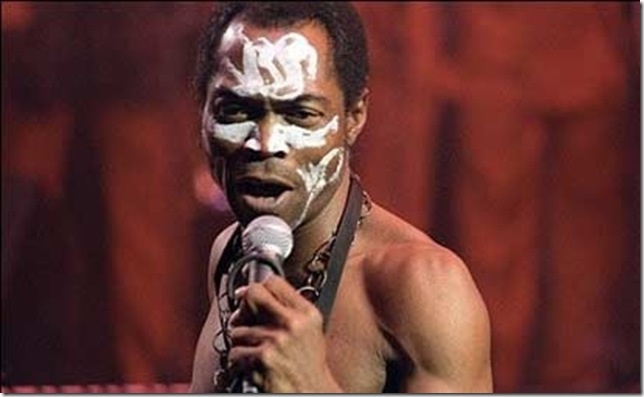My Winnipeg: Canadian experimentalist and silent-movie fetishist Guy Maddin called this 2007 feature (Criterion, $26.47 Blu-ray, $22.99 DVD) a “docu-fantasia.” This is as good a label as any to define My Winnipeg, an otherwise uncategorizable journey into the hypnogogic memories of Maddin’s past and the hometown in which he spent it.
Shot mostly in soundless black-and-white, with the director’s historical re-enactments staged to look like unearthed movies from more primitive times, Maddin poetically narrates us through the more sordid and surprising corners of Winnipeg’s history in a way that is anything but a travelogue: The city comes across as a sort of frostbit prison, a haven for sleepwalkers and Nazi imitators, blissful theme parks rampaged by hordes of wild animals, ballet company founders who dance out messages from the spirit world in Masonic temples.
He explores its labyrinth of hidden byways, the long-demolished buildings inside which he matured into a man, the underground pleasures and forbidden delights of a place most of this movie’s international demographic will never have visited yet will leave the film possessed by a certain local’s deep understanding of the city.
And that certain local is Maddin and Maddin alone, because the “My” of the title is just as important as the “Winnipeg.” Similar in a way to Terence Davies’ Of Time and the City — but far stranger — My Winnipeg is so personal that it’s esoteric, with narration and imagery so voyeuristic that it feels almost uncomfortable to review them. In part of the film, he reconstructs pivotal scenes from his childhood by hiring actors to play his siblings and directing his actual mother, a former television actress, through these traumatic memories. He calls it “vivisecting his own childhood,” and the result is at once brave, mad, melancholy and hilarious: You can fully believe he achieved therapeutic closure and sorted out his maternal issues by spelunking his past.
Criterion’s generous release is a carnival of extras, including four head-scratching “cine-essays” about various “Winnipegia,” which are directed by Maddin’s friend Evan Johnson; a featurette showcasing a live “performance” of My Winnipeg, with Maddin reading the narration; and four Maddin short films from 2008-2014. Among the most interesting are The Hall Runner, a mini meditation on the titular rug from his youth, over which his narration obsessively scrutinizes; Louis Riel for Dinner, a profound little animated short narrated by Maddin, inspired by the Canadian mythmaker of the title; and Spanky, an account of a memorable walk to a pier with his beloved pug.
Four Adventures of Reinette and Mirabelle: The late, great Eric Rohmer always excelled at finding the practical applications of timeless moral philosophies, usually discovering them by analyzing the felicities of the heart among the restless youth of Paris. His 1986 feature Four Adventures of Reinette and Mirabelle (Kimstim, $19.59 DVD) deals mostly with commerce instead of romance, but it’s hardly a career outlier: This elegant, episodic story of a friendship that buds, is put to the test, and finally flowers treads common Rohmerian ground, particularly the collision points between ethics and compassion, morality and expedience, give and take.
The girls of the title meet by chance, like so many Rohmer protags do: When her bike breaks down on a rural road, book-smart suburban student Mirabelle (Jessica Forde) meets the less-educated aspiring artist Reinette (Joëlle Miquel), who lives in a bucolic refurbished hayloft in the French countryside. They strike up a friendship and eventually become roommates in Paris, even as certain encounters reveal their clashing worldviews. Most of the “adventures” revolve around the exchange of currency, and pivot on canny humor: A hilariously cantankerous waiter (Philippe Laudenbach) finds his negative assumptions about Reinette unfounded; Mirabelle snatches already stolen goods from a supermarket thief, which leads to a moralistic debate with Reinette; the two young ladies gently conspire against a pedantic art dealer (Fabrice Luchini).
The film will be too talky for some, but its poetry comes through even in subtitles. 4 Adventures can be fanciful but is never contrived, and charming but never precious. Its subject is the wiring and potential rewiring of the characters’ moral compasses, achieved through the sort of healthy, exhaustible debate of which Rohmer shined. Icarus’ transfer is serviceable but not masterful; with most of Rohmer’s films long available on DVD, it’s great that his devotees at least have a U.S. release to complete their collections. The disc’s lone bonus feature is a video interview with Jessica Forde, and there’s also a critical essay in the booklet.
La Belle Captive: The longer you stick with this 1983 mystery (Olive Films, $22.99 Blu-ray, $19.99 DVD) directed by the avant-garde writer Alain Robbe-Grillet, the less sense it makes, and the more ravishing it becomes. Walter Raim (Daniel Mesguich), a hitman for a vague quasi-government branch known as The Organization, is seduced by a woman (Arielle Dombasle) in an aestheticized nightclub, where dancers move as if in a trance, sleazy sax music wails on the soundtrack, and smoke wafts through the lurid air. They share a dance, after she remarks that she may see him tomorrow, or perhaps yesterday: “Time doesn’t exist for me.”
Nor does it exist for the movie, and the same could be said for the film’s space. Later that evening, driving through an artificial nightscape, he finds the girl wounded on the pavement, drives her to an ancient manse to seek a doctor, and instead finds a spate of well-dressed party guests frozen like statues, as if they were imported from another Robbe-Grille script, Last Year at Marienbad.
Sex happens, or at least the suggestion of it, and when Walter wakes up the next morning, the place is a shambles, having been abandoned, he’s told, for “decades.” For the rest of the film, Walter plays detective, searching for a woman that seems increasingly to be a spirit, spurred on by cryptic clues: a vision of red theater curtains billowing in front of a seascape, a bloody shoe, a doctor who seems to be everywhere at the same time.
This heavily stylized nightmare evokes everything from Vertigo to Eyes Wide Shut (though it doesn’t take itself as seriously as either), not to mention the entire oeuvre of David Lynch. And it sometimes seems like a French New Wave genre deconstruction, some 15 years after the movement informally ended. La Belle Captive skips around such paranormal conceits as alternative universes, time travel and precognitive dreams without committing to any one idea, dodging logic every step of the way. It’s meant to be absorbed, admired, even fetishized, but not necessarily understood. Aptly enough, it moves at the pace of a hypnotic induction, so be patient and enjoy the trance.
The Palm Beach Story: Preston Sturges released this anarchic comedy of remarriage (Criterion, $26.75 Blu-ray, $22.31 DVD) in 1942 and, just like his Sullivan’s Travels, it takes on new relevance for each generation that discovers it. Today, it functions as a sly satire about the hedonism and lifestyles of the obscenely wealthy, with the titular setting acting as the One Percent microcosm it still is.
Joel McCrea plays an unsuccessful New York architect unable to fund his extravagant design for an airport in the sky; Claudette Colbert is his unsatisfied wife (isn’t she always?), a socialite in waiting who decides to pack her bags for the greener pastures of … why not Palm Beach? It’s the best place to get a divorce, after all, according to an enthusiastic cabbie.
A forward-thinking woman, she uses her sexuality to charm her way into an upper-class stateroom on a train to Florida, and then into the arms of a milquetoast billionaire with one of those great Preston Sturges names: John D. Hackensacker III (Rudy Vallee), a self-hating industry scion with a yacht he could live without, and who believes tipping the lower classes is un-American. But before that, Sturges spends a plotless 15 minutes or so with the rambunctious, rich old white men of the Ale and Quail Hunting Club on their private car to Palm Beach, which they proceed to riddle with bullets in an act of drunken revelry. Yes, these are still the people that are soon going to own about 60 percent of the country’s wealth.
The Palm Beach Story doesn’t stop to take a breath, from its manic, seemingly disconnected opening montage — madcap wedding preparations set to the William Tell Overture — all the way through its ballsy, self-consciously contrived ending, in which his characters get to have their cake and eat it too. As usual with Sturges, every character registers as his own fully formed creation, if only onscreen for a blip — each one a hilarious snowflake from the blizzard of Sturges’ imagination.
Supplements on this essential disc include a new interview with film historian James Harvey, a World War II propaganda short directed by Sturges, a 1943 radio adaptation of the film, and an infectious introduction by Bill Hader, part of which consists of the SNL star reading from Sturges’ brilliant script, and watching the results play out in front of us. It’ll make you want to watch the movie all over again.
Finding Fela: This 2014 feature from the prolific documentarian Alex Gibney (Kino, $19.99 Blu-ray, $16.98 DVD) uses the occasion of the Broadway premiere of the musical Fela! to further investigate its legendary subject, Afrobeat pioneer Fela Kuti. Aided by interviews with the musical’s director, Bill T. Jones, and musicians from Questlove to Paul McCartney, Gibney begins his film by acknowledging the cognitive dissonance inherent in staging a splashy Broadway musical about an antiestablishment revolutionary who might have blanched at such profligate capitalism.
The music Kuti made — 20-to-30-minute songs that he compared to classical symphonies in scope and vision — likewise clashes with Broadway norms. As Gibney portrays it, cramming Kuti’s personality, politics and music into a show formula is like squaring a circle, but as we see in enticing backstage footage, its makers were more than qualified to approach the task.
As Finding Fela continues, Gibney trains his lens on Kuti’s own life story, revisiting the musical’s rehearsals and production only intermittently. The narrative is straightforward but insightful, addressing biographical signposts that are not fully explored in Fela! — from the turbulent politics of war-torn Nigeria and Kuti’s unfortunately regressive opinions about women to his bizarre spiritualist phase in the 1980s to his tragic end as AIDS martyr.
The movie is long, at two solid hours, but nothing feels extraneous; it’s a scholarly companion piece to the hip-shaking musical, squeezing in everything it left out. And there’s even more of it: Extras on this disc include 15 extended interviews, a video performance from Kuti’s son Femi, and a podcast interview with Gibney.




